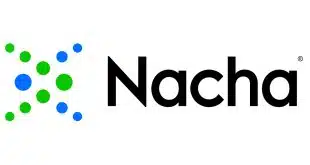Spotting an opportunity in combining online authentication with contactless technology, a 6-month-old Knoxville, Tenn.-based company plans to have a product on the market by early next year that consumers could use to make payments both on e-commerce sites and at the point of sale. Elemental Knowledge LLC is starting with a contactless fob with a USB connector for use in online authentication, to be followed by a credit card form factor featuring a contactless chip-and-antenna inlay as well as a USB connector for use with PCs and at POS readers. The card, says Doug Yeager, founder of Elemental Knowledge, should begin shipping in early 2008. By inserting the card into a USB port at checkout, consumers would be able to pay online merchants from the account stored on the card's chip. Using so-called reader-on-card technology, the card requires no drivers and can interrogate the chip and generate a dynamic account number, or an account number some of whose numbers have been encrypted for one-time use. Issuing banks, Yeager says, will require no special software to interpret the incoming authorizations. At the same time, the mag-striped card will work with contactless transceivers at merchant counters and will swipe through about 90% of POS terminals, Yeager estimates. Elemental Knowledge, which is currently funded by angel investors Yeager won't name, plans to work with U.S. Encode, a San Diego company, to market its product to banks. U.S. Encode, which several years ago developed an authentication platform to support a payment card that would work in the CD drives of PCs (Digital Transactions News, March 2, 2006), has developed banking relationships in Australia and South Africa as well as the U.S and sees Yeager's technology as compatible with its own strategy. The Elemental Knowledge product “increases the offering to financial institutions, and provides a transactional piece at the point of sale as well,” says Brian T. Murray, chief executive at U.S. Encode. “That's the way we went with our optical card. We've built an authentication back-end into which this [Elemental Knowledge technology] will plug seamlessly.” The two companies are hammering out the details of their partnership, Yeager and Murray say. Yeager, who holds a master's degree in mechanical engineering, approaches the contactless payment business from the radio-frequency-identification side of the industry, having founded a company earlier that made RFID readers for supply-chain applications. He now hopes one product will leverage two critical trends: the spread of contactless technology for payment and online authentication for e-commerce and online banking. “I thought the authentication space could use contactless,” he says. “I wanted to take that added value [from contactless] and let people use it for Internet transactions, and also without shipping everyone readers.” Currently in prototype, the card does present Yeager with one technical problem he's still wrestling with: how to incorporate the USB connector, which fits on a corner of the card but is thicker than standard credit card stock. He sees two approaches–either clipping the connector on the corner of the card as a temporary add-on or affixing it permanently. He favors the latter approach and is working out the engineering details. “That will require study,” he says. Another factor is cost. Yeager estimates his card will cost about 75 cents more than ordinary contactless cards at low, pilot-size quantities, predicting this difference will shrink at high quantities. Elemental Knowledge also faces competition from companies like Pay By Touch and MagTek Inc., which are selling high-tech products to secure both online and brick-and-mortar transactions. The technology's key advantage, as Yeager sees it, is that it is an all-in-one device that doesn't require consumers to load software or attach peripheral hardware and that also works at the physical point of sale. Historically, consumers have proven resistant to hooking up external readers or PIN pads to authenticate themselves for online payments. “I wanted to make this an added value rather than a hindrance,” Yeager says. “The idea was dead unless we could ship it as a single device.”
Check Also
Pixel Watch Adds Express Pay and other Digital Transactions News briefs from 3/4/26
Google updated the software for its Pixel Watch with an express-pay feature that enables users to …






